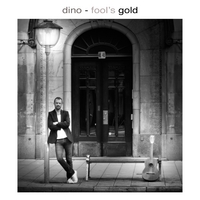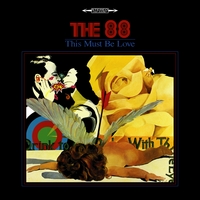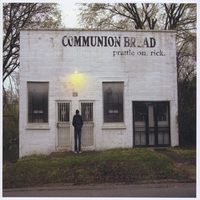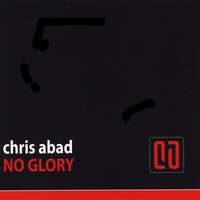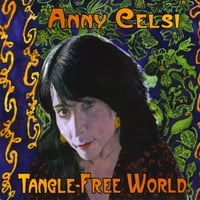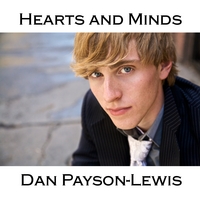Tony Abbott, leader of the "conservative" opposition, is at it again. Abbott is a man who talks the conservative talk but then walks the liberal walk.
Consider the issue of nationalism. If you were to read the
following, you might think that Mr Abbott was a traditionalist conservative:
Scruton, probably the English-speaking world's finest conservative thinker, evokes a conservatism that's founded on an instinctive love of country.
Conservatives are engaged in their country's history, proud of its symbols, concerned for its welfare, attached to its values and vigorous in its defence. The instinct to defer to authority and to respect tradition - the sense that each individual has been shaped by the past and will influence the future, having both ancestors and descendants to keep faith with - is deeply ingrained in human beings, even if it's under-appreciated by intellectuals. A conservative apprehends how so much modern thinking is actually in revolt against human nature.
But all these fine words come to nothing. It
turns out that his version of keeping faith with his ancestors is to promote the fastest possible demographic change to his country via mass immigration:
My instinct is to extend to as many people as possible the freedom and benefits of life in Australia. A larger population will bring that about provided that it’s also a more productive one
So we're to have as many immigrants as possible and work harder. That's the gist of Mr Abbott's policy.
In the same speech, Mr Abbott rewrites history and denies that a distinctly Anglo-Australian nation ever existed. It seems that apart from the Aborigines, everyone else has been an immigrant and part of a multi-culti society and culture:
Except for the half million or so who identify as Aboriginal, every other Australian is an immigrant or the descendant of immigrants since 1788. Unlike any other, we are a nation of relatively recent immigrants ... This means, of course, that the immigrant who feels like a stranger in our midst is really at the heart of the Australian story.
To the extent that it is a celebration of our nation, Australia Day is necessarily a salute to an immigrant culture.
How does Mr Abbott manage to combine conservative sounding rhetoric with such radically liberal outcomes?
Mr Abbott is a member of a right-liberal party. Like all liberal parties the basic principle is "freedom" understood to be the pursuit of individual self-determination. This is Abbott
explaining what the Liberal Party is about:
Edmund Burke once defined a political party as people working for the national interest according to a particular principle on which they all agreed ... The essential principle animating the Federation Fathers (whether conservative protectionists or liberal free traders, they mostly ended up in the first version of an Australian liberal party within a decade) was citizens’ greater freedom to pursue their individual destinies within the framework of a new nation.
And in the same vein:
The dream of greater personal freedom is probably the Liberal Party’s nearest equivalent to a “light on the hill”
According to Abbott a liberal is someone who embraces this freedom straight up, whereas a conservative is a bit more cautious, more of a slow learner:
In a world where nothing exists in isolation and everything is connected, “liberalism” and “conservatism” turn out to be complementary values. The difference between a “liberal” and a “conservative” is not that one values freedom and the other doesn’t or even that one asserts and the other denies that freedom comes first. The difference between the ways liberals and conservatives value freedom is, perhaps, more the difference between love at first sight and the love which grows over time.
The problem with making a freedom to self-determine the key principle is that it undermines many important traditional goods, including those of family and nation.
We don't get to determine the basic form of the family, so therefore the traditional family becomes for liberals a restriction on our personal freedom. What liberals want instead is a variety of family types for individuals to choose from, none of which is to be preferred over another. Abbott is no
exception:
Supporting families shouldn’t mean favouring one family type over others. We have to resist yearning for “ideal” families and “traditional” mothers. Every family is a source of nurturing and security for its members.
Note that Abbott is not just saying here that we need to accept that there will be people who find themselves as single parents and that we should support their efforts to do their best for their families. He's going much further than this and saying that we cannot even uphold the traditional family of dad, mum and the kids as an ideal to aim for.
If he were a straight up liberal you could at least concede that Tony Abbott was being true to his principles here. But consider the way he praises the Howard Government (in which he was a minister):
An examination of the Howard government's signature policies shows deep concern for personal responsibility, individual choice, reward for effort, the protection of families and respect for traditional institutions and values.
He asserts that respect for traditional institutions is a praiseworthy good but then argues that we must resist supporting the ideal of the traditional family. Isn't the traditional family a traditional institution? Isn't it a key traditional institution? His position lacks coherence.
The liberal principle of individual self-determination also undermines traditional nationalism. We don't get to choose our own ethnicity, so nations that are based on a common ethnicity will be thought an impediment to individual freedom and equality by liberals. Instead, liberals often argue for a "civic nationalism" based on citizenship, or for a "proposition nation" based on shared ideals or values.
Abbott is a proposition
nationalist:
Notwithstanding their frequent inability to articulate them, men and women live by ideals. Shared ideals and enduring values are what turn crowds into communities and peoples into societies and ultimately civilisations. They form the bonds of kinship and common purpose which constitute the social fabric and which allow diverse individuals to find a sense of place and belonging in something which transcends themselves.
So it's no longer kinship which forms the bonds of kinship, but rather shared ideals and values. There are many problems with this form of nationalism. First, liberals are understandably reluctant to specify the ideals and values too closely. To do so would risk excluding people who don't share these beliefs from the definition of the nation. Abbott even goes as far as to reassure migrants that:
Australia makes very few demands of its immigrants. There is no ideal of Australian-ness to which they are expected to conform.
Abbott has turned here abruptly from the idea of "shared ideals" forming a sense of Australian-ness to there being "no ideal" of Australian-ness.
A second problem with proposition nationalism is that it's much the same from country to country. When liberals do talk about the shared ideal defining the nation, it's usually some kind of liberal value. So all of the Western liberal countries end up being defined much the same way. A person could just as easily be defined as an American, or an Australian, or a Canadian.
And yet we want our national identity to be distinct in some way. Abbott makes a lame attempt to make it sound as if Australia is somehow uniquely defined as an immigrant nation:
Unlike any other, we are a nation of relatively recent immigrants. New Zealand has a proportionately larger indigenous population and North America has been settled for almost two centuries longer.
Sure. Every liberal Western nation is busy defining itself as an immigrant nation, but Australia gets to define itself as such more than the others because we were settled later and have a smaller indigenous population. It's clutching at straws. If we define ourselves as an immigrant nation, then we are not unique, but interchangeable with all the other Western national identities.
Proposition nationalism also suffers from being unstable. Not only can the demographic nature of a country change over and over under proposition nationalism through limitless immigration, but there is no reason for the national state itself to stay in existence. If Australia, Papua New Guinea and the Pacific nations all share the same values, then why not merge them into a new regional state, if there are political and economic advantages in doing so? Why not join together the European states into a single superstate?
There's one final consequence of proposition nationalism I'd like to mention. If what binds a nation together is a shared ideal or value, then you will want to base your political party on this shared ideal or value.
But this then leads to distortions in your understanding of politics. It means that Tony Abbott can't do what a real conservative has to do in order to conserve his own tradition, which is to set himself in a clear and principled way against liberalism. Instead, he has to try and show that liberalism and conservatism are only superficially different and really on the same page. Otherwise, the belief in the national "shared value" as promoted by your party falls apart.
There's more to say on all this, but I'll leave it for a future post.











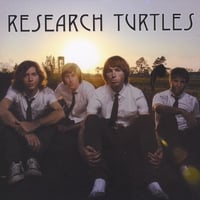
 Research Turtles
Research Turtles